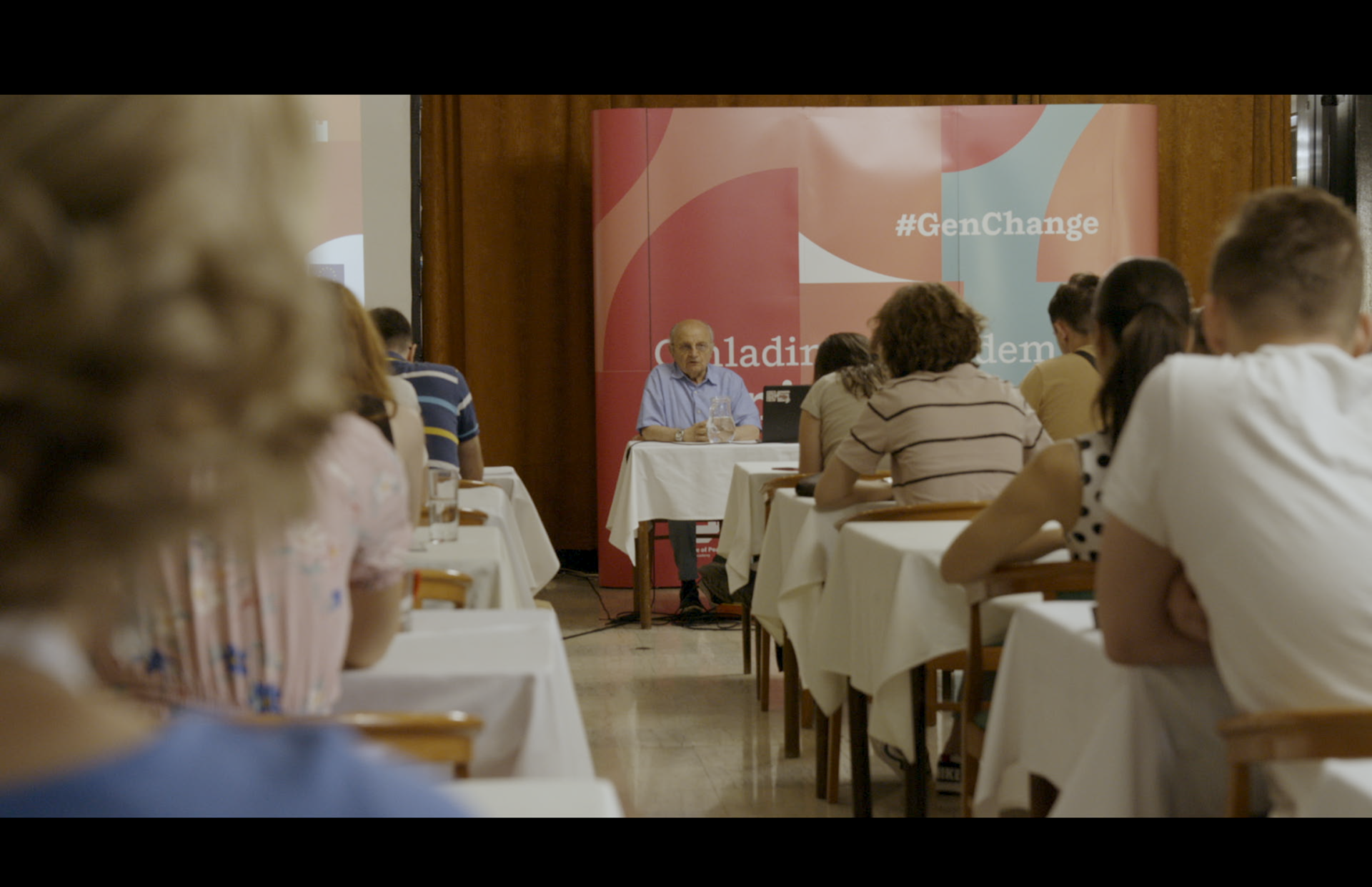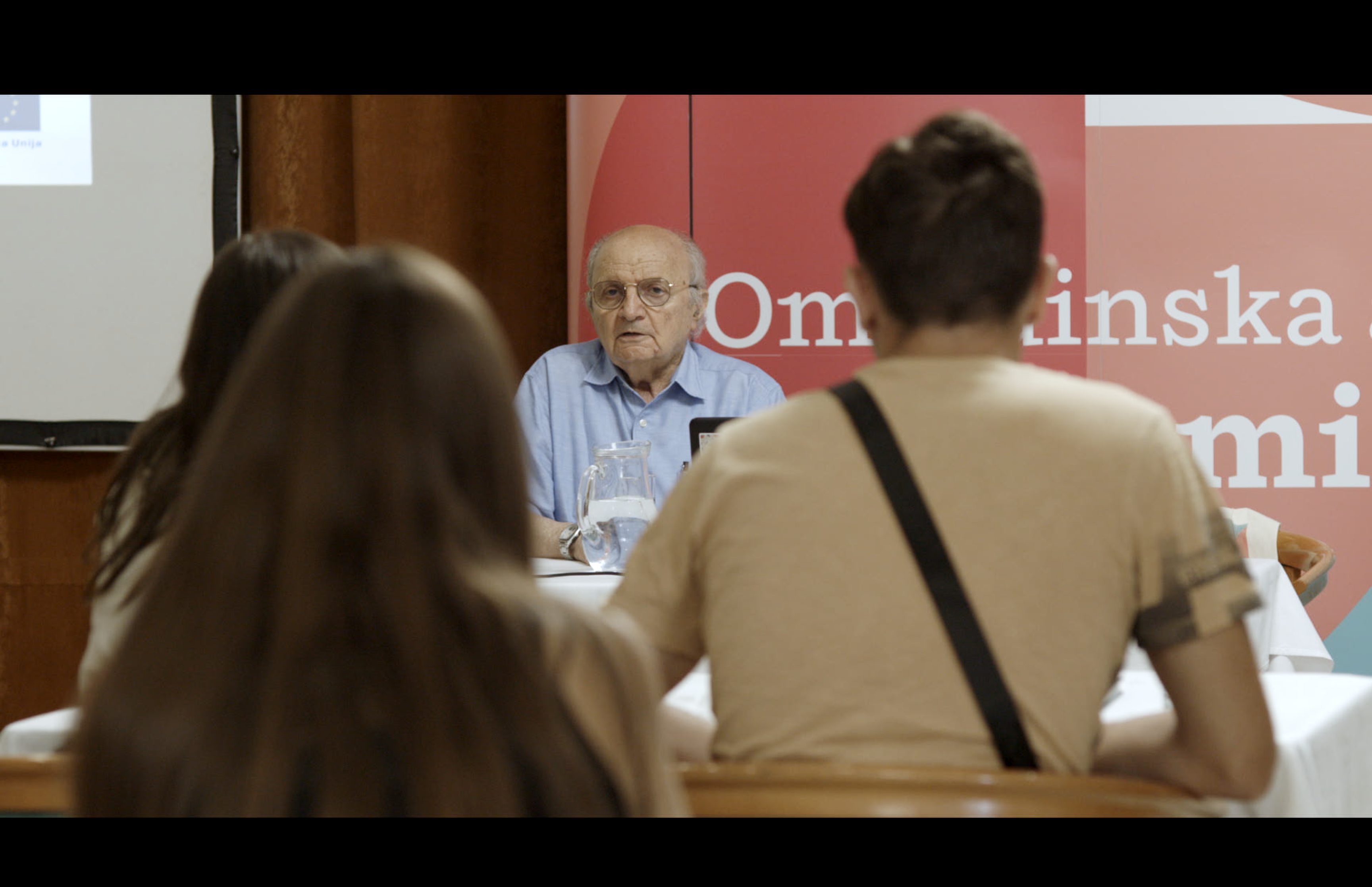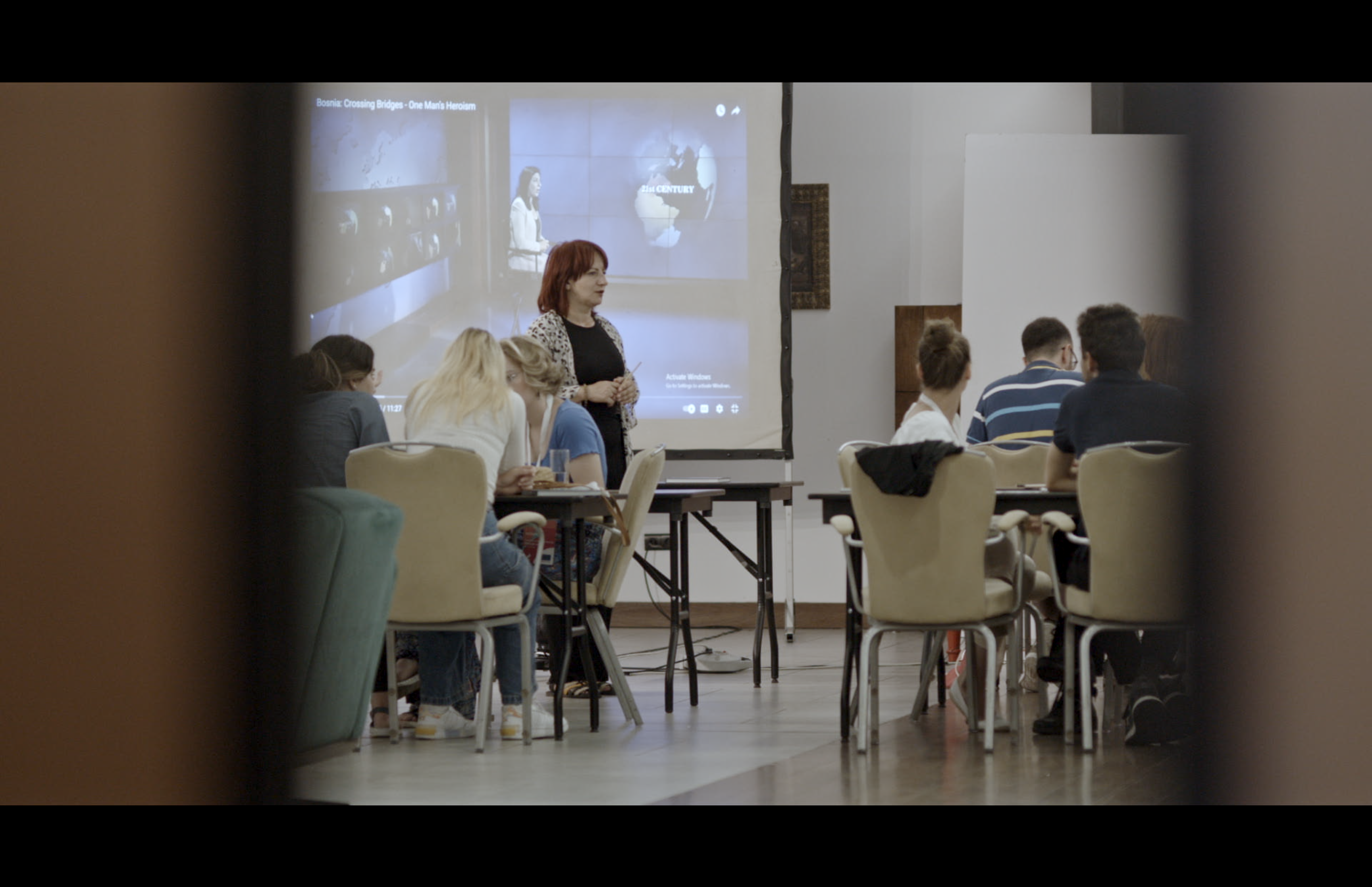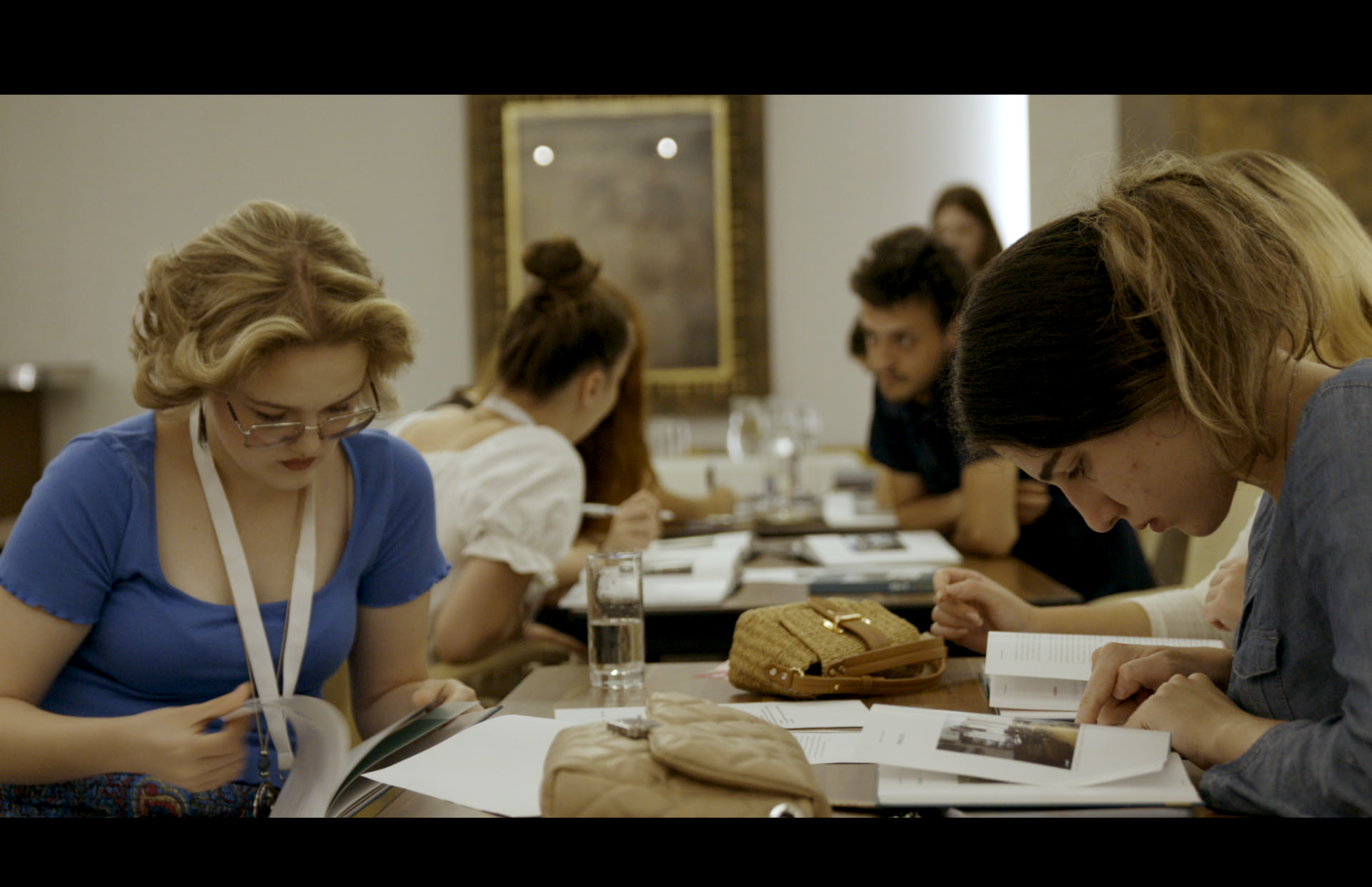
Participants of the “State of Peace” Youth Academy, organized by the European Union in Bosnia and Herzegovina in cooperation with the Post-Conflict Research Center, discussed the lessons and the legacy of the Holocaust in the region, and how these lessons can be used to prevent conflict and strengthen the reconciliation process.
Jakob Finci, the president of the Jewish community in Bosnia and Herzegovina, said that the Holocaust is the most used and abused term in the 20th and 21st centuries. It is a historical tragedy that was perpetrated against the Jewish people simply because they were Jews.
“In our region, in the Balkans, 85 percent of Jews perished. At the beginning of the Second World War, 12 thousand Jews lived in Sarajevo, and at the end of the war there were less than 2 thousand Jews”. Jakob Finci explained that he himself was born in one of the Nazi camps where Jews were gathered, on the island of Rab, and at the end of the Second World War he returned with his family to Sarajevo, where he still lives today.

He described life in Yugoslavia as simple because “we lived normally with all other citizens of Sarajevo and Bosnia and Herzegovina”.
He also spoke about life during the siege of Sarajevo, the longest siege in modern history, emphasizing the humane role of the Jewish community and the humanitarian association La Benevolentija, as well as the way he fought for survival together with other fellow citizens. Participants of the “State of Peace” Youth Academy come from Croatia, Serbia, Montenegro and Bosnia and Herzegovina.

The participants were presented with the Holocaust & Peace manual, which is a unique publication on peace education based on 20 years of work of civil society and teachers in the region.
Tatjana Milovanović, program director of the Post-Conflict Research Center, one of the manual creators, said that the manual “Holocaust and Peace” with 14 lessons includes all topics that are currently missing in the educational process of the countries of the region, including peace, tolerance, developing empathy and critical thinking, memorialization, propaganda, and the fight for human rights and against discrimination.

Part of the Holocaust & Peace manual was presented to young participants through several workshops about monuments and memory, as well as ordinary heroes and moral courage, led by teachers Melissa Forić and Đuldina Kurtović. As of this school year, the manual is also part of the curriculum for public primary and secondary schools in Sarajevo Canton, and it is expected to be applied throughout the country in the coming years.
A participant of the Academy, Asja Suljić from Tuzla, stated that through education, there is not much encounter with the subject of the Holocaust. “These informal educations contribute to my development and knowledge to be aware of the Golgothas peoples have gone through just because they are of a different nationality.”
After Sarajevo, the State of Peace Youth Academy continued in Vitez, where it ends on August 31. Young people will also take part in workshops on interethnic relationships and families, photography exhibitions, visits to memorials in Central Bosnia, and music concerts.





